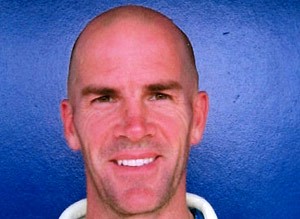Anti-doping expert believes experts must have freedom of speech
 Michael Ashenden, one of the world’s top anti-doping scientists, has stood down from the biological passport panel which oversees cycling due to his frustration with a new rule in place.
Michael Ashenden, one of the world’s top anti-doping scientists, has stood down from the biological passport panel which oversees cycling due to his frustration with a new rule in place.
Ashenden has been part of the UCI’s biological passport system since its introduction in 2008. However from the start of this year, the management of this anti-doping and monitoring system has become the responsibility of the Athlete Passport Management Unit in Lausanne, which also deals with other sports such as athletics. Under that change, a new contract has been drawn up.
Responding to a BBC story about his resignation, Ashenden spoke to VeloNation today and confirmed that he had stepped down.
He said that the new arrangement is practically identical to the previous setup, but with one key change. The APMU has introduced an extra clause to WADA’s contract for those who sit on such panels, dictating that they must observe a confidentiality agreement which will last for eight years.
Ashenden, who has a reputation for speaking openly about the anti-doping system, refused to sign the agreement and has thus been locked out of the system since the start of 2012.
He explained his position, saying that he believes this additional clause is counterproductive and restrictive.
“My resignation is about this confidentiality clause as I don’t agree with it,” he told VeloNation today. “It’s not about the biological passport system, as such.”
He said that he believed anti-doping experts must have freedom of speech in order to be able to comment when necessary. This is understood to relate to the process of the biological passport and testing, rather than about the athletes themselves. The identities of those being tested under the biological passport system are unknown to the experts until just before cases are brought against them.
In the past, cycling and other sports were blighted by claims that an omerta was in place, thus preventing proper transparency and allowing anti-doping problems to develop.
The UCI confirmed the resignation today, but emphasised that the biological passport is no longer under their watch. “The system is now being run by the Athlete Passport Management Unit in Lausanne,” UCI spokesman Enrico Carpani told VeloNation. “Because of that, the UCI has nothing to do with Michael Ashenden’s resignation.”
He said that he was unable to say if any biological passport cases were pending.
Ashenden has spoken out in the past about a frustration with a lack of momentum in the biological passport system which, by all suggestions, has slowed down considerably from when it was first launched. Fewer tests are being done and no new cases have been brought forward in a long time.
However the Australian made it clear today that the reason for him resigning now is because of the APMU clause, rather than such concerns.
“Anti-doping exists to protect clean athletes, not the reputation of the anti-doping movement. When push comes to shove, my actions will always be in the interests of clean athletes, even if that means I ruffle feathers by highlighting some inconvenient truths,” he told the BBC.
“And just because I serve on their panel, it doesn’t give them the right to silence me.”
VeloNation understands that some other members of the panel are also concerned by the confidentiality requirement. It remains to be seen if others will follow Ashenden in standing down, or speaking out.
The APMU has not yet responded to requests for comment.